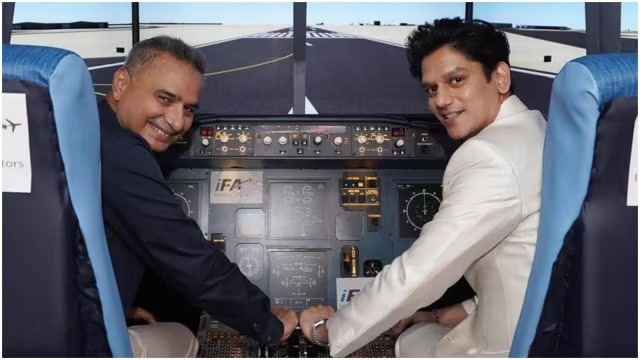- August 30, 2024
IC 814: Captain Devi Sharan told jokes to hijacker named Burger, who ‘won the hearts’ of hostages by singing songs

The hijacking of Indian Airlines Flight IC 814 on December 24, 1999, stands as one of the most harrowing and impactful events in Indian aviation history. The week-long ordeal gripped the nation and the world, highlighting the vulnerabilities of air travel and international diplomacy. Among the many gripping aspects of the incident, the interaction between Captain Devi Sharan, the pilot of the ill-fated flight, and one of the hijackers—nicknamed “Burger”—emerged as a curious subplot. This article delves into the hijacking, the unexpected bond that formed between the captain and the hijacker, and the broader implications of the crisis. Indian Airlines Flight IC 814 took off from Tribhuvan International Airport in Kathmandu, Nepal, bound for Indira Gandhi International Airport in New Delhi. Onboard were 178 passengers, including five crew members. The flight was routine until, shortly after takeoff, five masked men armed with pistols and grenades stormed the cockpit, signaling the start of a crisis that would stretch over seven excruciating days. The hijackers, later identified as members of the Pakistan-based terror group Harkat-ul-Mujahideen, diverted the plane first to Amritsar, then to Lahore, Dubai, and finally to Kandahar in Afghanistan, then under the control of the Taliban. Their demands were clear: the release of three prominent militants imprisoned in India, including Maulana Masood Azhar, who would later go on to found the Jaish-e-Mohammed terror group, responsible for numerous attacks against India. Captain Devi Sharan, a seasoned pilot with over two decades of experience, suddenly found himself in an unprecedented and dangerous situation. Despite being thrust into the spotlight, his composure under pressure became a beacon of hope for the terrified passengers. Sharan’s primary concern was to ensure the safety of everyone onboard, and he quickly realized that maintaining a calm and cooperative demeanor with the hijackers was critical. Sharan’s ability to manage the situation wasn’t just about piloting skills; it required emotional intelligence, diplomacy, and a deep understanding of human psychology. In the hostile environment of a hijacked plane, even the smallest action could have catastrophic consequences. Sharan took on the unenviable role of not just the captain but also a negotiator, mediator, and, as it would turn out, an unexpected confidant to one of the hijackers. Among the five hijackers, one stood out for his contradictory behavior—his love for music and an unusual penchant for storytelling. Known by the nickname “Burger,” he was seen by the hostages as an almost affable figure, albeit with a dark edge. Burger’s role was primarily to keep an eye on the cockpit, where he interacted most frequently with Captain Sharan. He became known for his peculiar attempts to connect with hostages through songs, jokes, and even small gestures of kindness. Winning Hearts Through Music: On more than one occasion, Burger sang songs, both in English and Hindi, sometimes even at the request of the hostages. While it was an odd and surreal spectacle in the context of a hijacking, these moments offered fleeting comfort to the passengers, breaking the tension, if only for a few minutes. Burger’s performances, though erratic, seemed to humanize him in the eyes of those who were otherwise under threat of violence. Jokes and Conversations with Captain Sharan: Sharan and Burger developed a rapport that was as unexpected as it was necessary. Sharan’s ability to stay composed allowed him to engage Burger in light-hearted banter, a tactic that served to keep the hijacker’s mood stable and defuse moments of high tension. Sharan often told jokes to Burger, a risky but calculated move to keep the atmosphere in the cockpit from becoming overly hostile. The rapport between Sharan and Burger was not simply about jokes or songs—it was a nuanced psychological dance. Sharan understood that maintaining any semblance of normalcy could have a profound impact on the hijackers’ behavior. By engaging with Burger, he was able to subtly influence his actions, ensuring that the situation didn’t escalate further.


